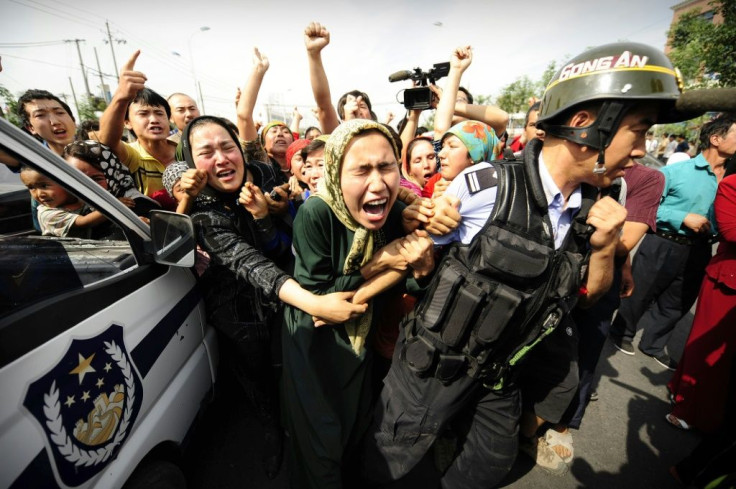US Bans Top Chinese AI Firms for Uighur Repression; List Of Firms Here

State-owned Hangzhou Hikvision Digital Technology Co., Ltd., or Hikvision, the world's largest supplier of video surveillance equipment, was among the Chinese high-tech firms (mostly involved in artificial intelligence) blacklisted by the United States for their alleged roles in the repression of Muslim Uighurs and other ethnic minorities.
The U.S. ban targeted eight private firms and 20 Chinese state security bureaus. All 28 firms and government agencies are accused of using U.S. technology in tech products such as facial recognition cameras to help China create a high-tech police state repressing minorities.
The Trump administration on Tuesday placed visa restrictions on Chinese officials as part of this punishment package directed against China for its ethnic repression.
The other seven tech firms on the U.S. blacklist, or Entity List, are state-owned video surveillance products and services provider Zhejiang Dahua Technology Co., Ltd.; voice recognition firm iFlytek; digital forensics company Xiamen Meiya Pico Information Technologies Co., Ltd; information security provider Yixin Science and Technology Co.; AI research company and cloud-based facial recognition products firm YITU; facial recognition technology firm SenseTime Group Ltd; and Megvii Technology Ltd, a deep-learning AI firm.
Megvii is the world’s largest AI startup and is valued at $3.5 billion. Meiya Pico controls nearly half the market share for computer investigation services products in China. Sense Time is valued at $7.5 billion.
The administration's decision bars these firms from buying components from U.S. companies without U.S. government approval. Analysts say the U.S. move is potentially crippling, especially for Hikvision.
Hikvision uses devices made by Nvidia Corporation, Intel Corporation, Ambarella Inc., Seagate Technology and Western Digital and the impact of the loss of devices will be “devastating," according to John Honovich, founder of surveillance video research company IPVM. In addition, Hikvision receives nearly 30% of its $7 billion revenues from overseas.
Hikvision said it strongly opposes the U.S. decision. It claims it’s been working with Trump administration officials over the past 12 months "to clarify misunderstandings about the company and address their concerns."
"Hikvision, as the security industry's global leader, respects human rights and takes our responsibility to protect people in the U.S. and the world seriously," said Hikvision.
The U.S. Department of Commerce said these “entities have been implicated in human rights violations and abuses in the implementation of China’s campaign of repression, mass arbitrary detention, and high-technology surveillance against Uyghurs, Kazakhs, and other members of Muslim minority groups.”
Secretary of Commerce Wilbur Ross said the U.S. government and the commerce department "cannot and will not tolerate the brutal suppression of ethnic minorities within China."
U.S. officials, however, claim the action isn't linked to the resumption of trade talks on Oct. 10. The new ban, however, sends the signal president Donald Trump maintains his hard-line stance against China as both countries try to end their 15 month-long trade war.
Secretary of State Mike Pompeo said the visa ban targets Chinese officials “believed to be responsible for, or complicit in, the detention and abuse of Uighurs, Kazakhs, or other members of Muslim minority groups” in Xinjiang.
In August, the Trump administration issued an interim rule banning federal purchases of telecommunications equipment from five Chinese companies, including Hikvision. The ban was included in the National Defense Authorization Act (NDAA) passed in 2018.
NDAA restricted the use of federal money to purchase telecommunications equipment and services and video surveillance equipment from “covered” telecom firms, citing national security concerns.
© Copyright IBTimes 2025. All rights reserved.




















